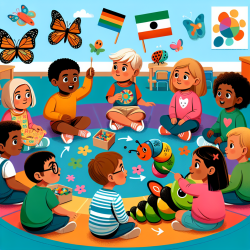The transition to kindergarten is a pivotal moment in a child's educational journey. For children from low-income backgrounds, this transition can be particularly challenging. Research has shown that both school climate and the quality of teacher-child relationships play crucial roles in shaping academic outcomes during this period. This blog delves into the findings of a study titled "School Climate, Teacher-Child Closeness, and Low-Income Children’s Academic Skills in Kindergarten" to provide insights and practical strategies for educators.
The Importance of School Climate
School climate refers to the overall atmosphere of a school, encompassing norms, beliefs, and interpersonal relationships among teachers, students, and staff. A positive school climate characterized by high levels of adult support can significantly influence children's academic performance. The study found that low adult support within schools was associated with poorer language/literacy and math skills among kindergarteners.
To foster a supportive school climate:
- Encourage open communication between staff and students.
- Implement programs that promote social-emotional learning.
- Create an inclusive environment where every student feels valued.
The Role of Teacher-Child Closeness
The relationship between teachers and students is another critical factor influencing academic success. The study highlighted that teacher-child closeness positively impacts language/literacy and math skills. This relationship can serve as a protective factor, especially in schools with lower levels of adult support.
Strategies to enhance teacher-child closeness include:
- Building trust through consistent and positive interactions.
- Providing individualized attention to address each child's needs.
- Creating a classroom environment that encourages exploration and learning.
Joint Influence on Academic Skills
The interaction between school climate and teacher-child closeness is significant. Children who experience high levels of both adult support at the school level and closeness with their teachers tend to perform better academically. This suggests that efforts to improve school climate should be complemented by initiatives to strengthen teacher-student relationships.
Practical Implications for Educators
Educators can take several steps to leverage these findings for improving student outcomes:
- Professional Development: Invest in training programs that focus on building strong teacher-student relationships and creating supportive classroom environments.
- Collaborative Efforts: Foster collaboration among teachers, administrators, and parents to create a cohesive support system for students.
- Data-Driven Decision Making: Use data from student surveys and assessments to identify areas for improvement in school climate and teaching practices.
Conclusion
The study underscores the importance of nurturing both school-wide support systems and individual teacher-student relationships to enhance the academic skills of low-income kindergarteners. By focusing on these areas, educators can help bridge the achievement gap and provide all children with a strong foundation for future learning.
To read the original research paper, please follow this link: School Climate, Teacher-Child Closeness, and Low-Income Children’s Academic Skills in Kindergarten.










